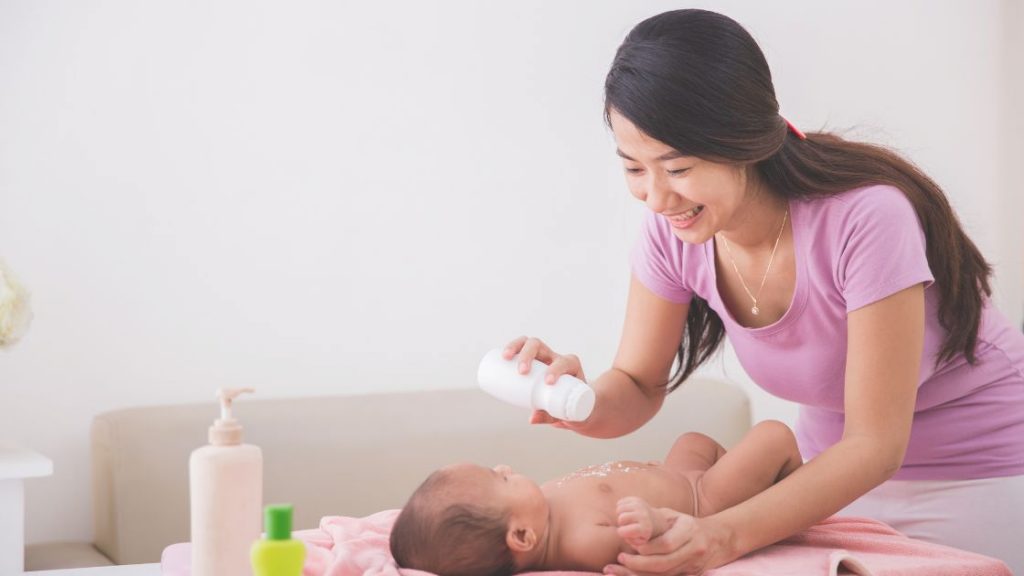Babies are curious about everything and naughty to play with stuff around them. Some newborns are mischievous touching baby powders making the powders spread everywhere. Or parents notice babies coughing a lot when you put baby powders on them, etc.
Most baby powders contain talc. This substance does not dissolve in water and can lead to many dangerous side effects, including skin or throat irritation, coughing, vomiting, and convulsions.
So how should we solve this problem? This article will help you answer questions like: Is it okay to wash the baby's face with water after using baby powder? Does baby powder dissolve in water? I will also provide necessary caution for moms when they start to use baby powder.
What Is Baby Powder?
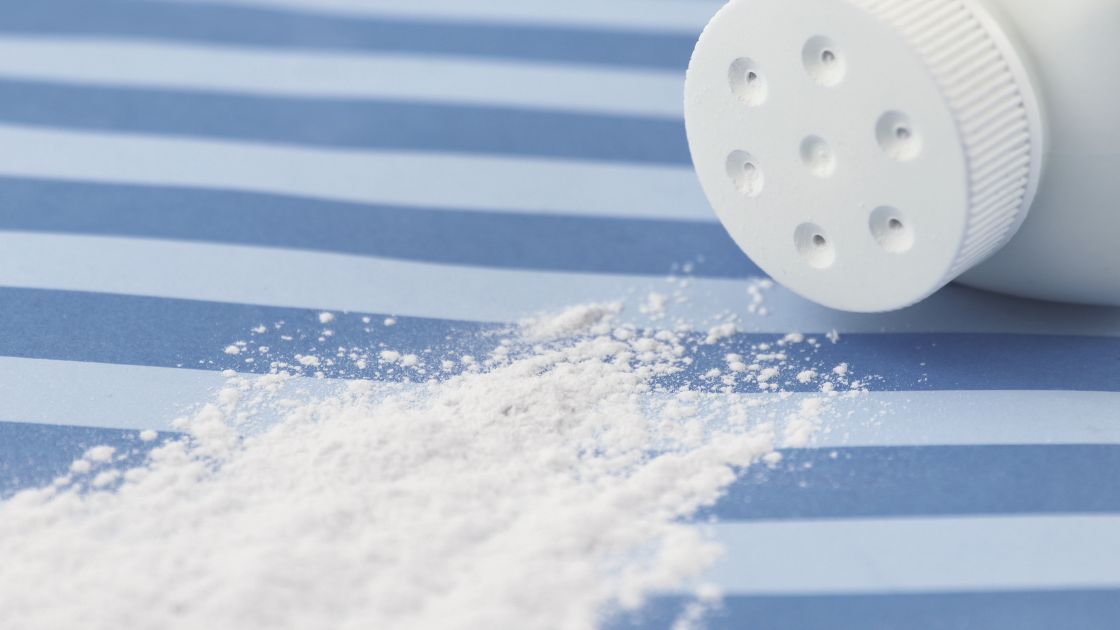
Baby powder is a form of sanitation or cosmetic powder made from:
Throughout diaper changes, we use baby powder for three reasons:
Does Baby Powder Dissolve In Water?
Baby powder can not dissolve in water even if the ingredients are talc or cornstarch. According to ScienceDirect, Talc is insoluble in water, diluted mineral acids, diluted alkali halide solutions, and diluted alkaline hydroxide solutions. In heated, concentrated phosphoric acid, it is soluble.
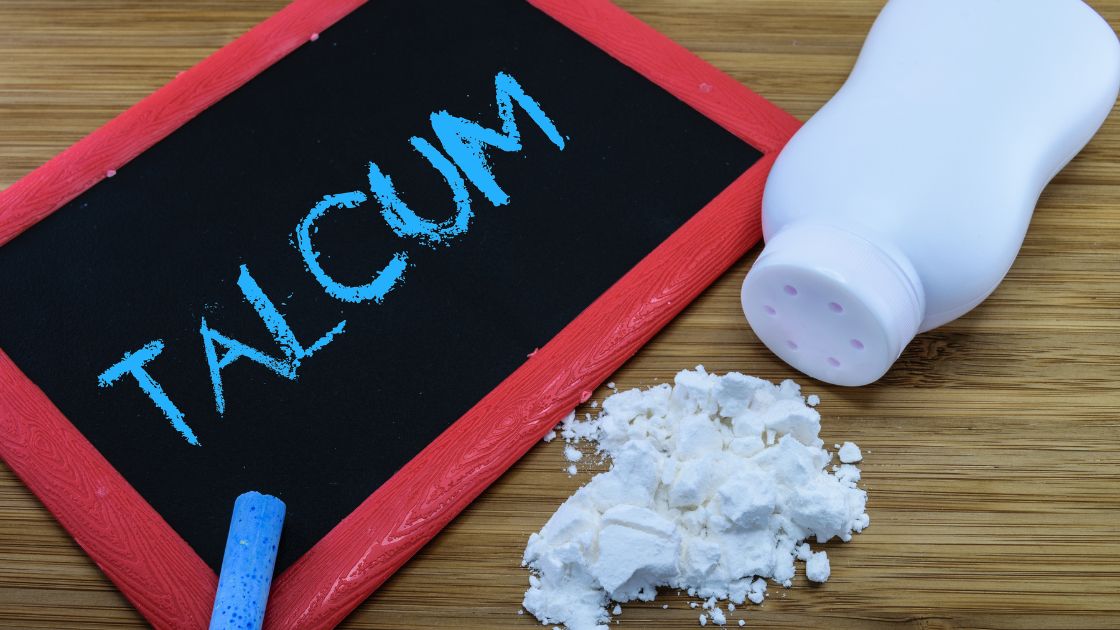
What happens when you put baby powder in water?
Because most baby powders contain talcum powder (talc), when combined with water produces a gritty paste with a viscosity similar to sidewalk chalk and dries like the weakest cement you can imagine.
Does baby powder absorb water?
The quick response is that they do. Baby powder's function is to make the skin slick so it will not chafe when it rubs against fabric or other skin, and to absorb moisture, including human sweat and moisture, both water- and oil-based.
Talc turns into a powder when crushed. When baby powder with talc becomes moist, it clumps and is useless for avoiding chafing.
Is baby powder hydrophobic?
Yes. Like the introduction, one of the main ingredients of baby powder is talc.
Research on NIH proves that water significantly adsorbs on talc surfaces because the adhesive contacts in talc are strong enough to overcome the unfavorable entropy. Water beads up on talc surfaces because the cohesive interactions are too strong for them to overcome.
Surprisingly, even very sticky talc-like surfaces do not entirely wet at saturation. Rather a heavily adsorbed monolayer of water forms on top of a water droplet. The findings show that water molecules may be adsorbed inside hydrophobic zeolites suspended in water at pressures substantially lower than the intrusion pressure.
Safety Notes For Using Baby Powder
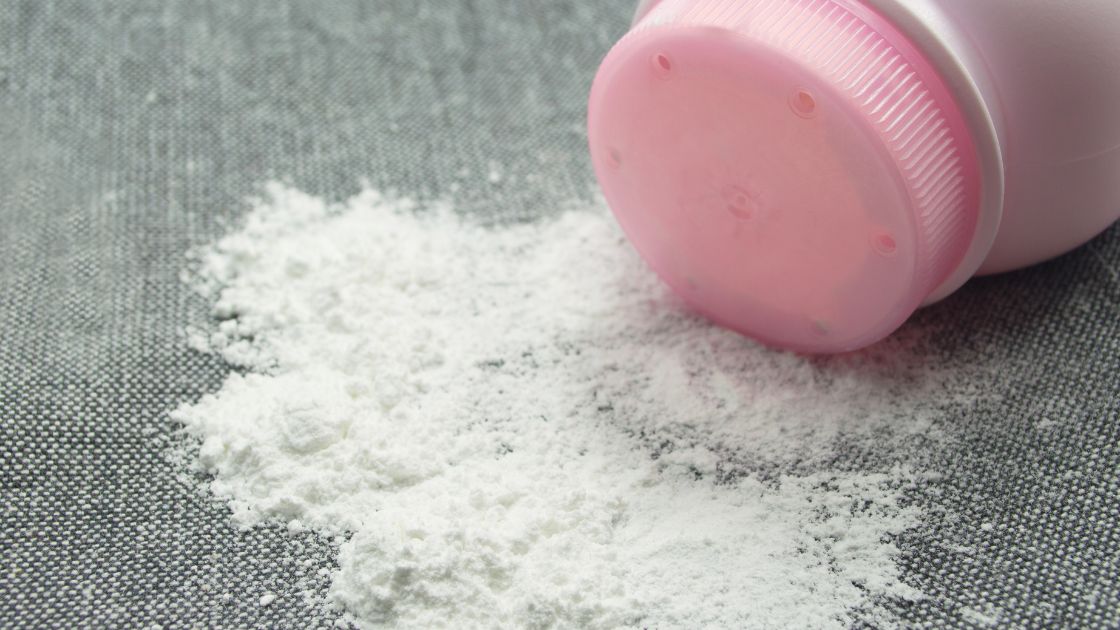
If baby powder (talc or cornstarch) is inhaled and gets into the lungs, it can cause respiratory issues, especially in infants. Baby powder is not a suggestion in any medically special procedures. Here are some precautions you can take to use talc powder more safely if you are concerned about your or your child's exposure to it:
How To Choose The Suitable Baby Powder For Your Kids?
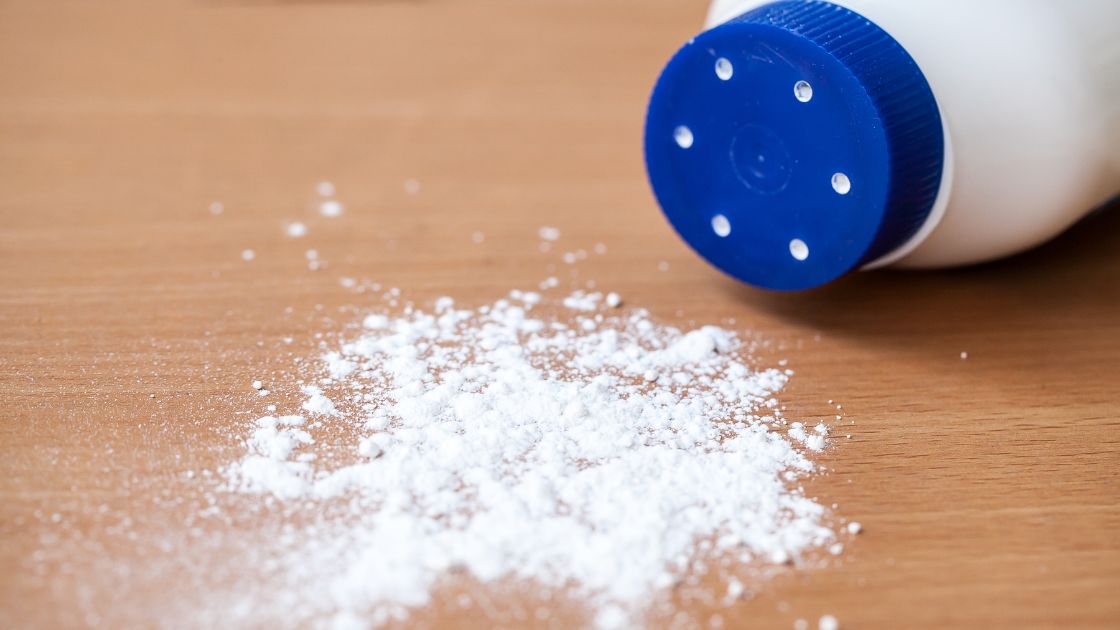
Diaper rash risks can decrease by using baby powder to keep your child's diaper area dry between changes. Make sure the baby powder you choose has each of the qualities to minimize skin allergies.
In general, an odorless cornstarch-based baby powder works well for most kids. Although many parents may not want their child to be exposed to these chemicals directly, some of these products may still include sodium borate and DMDM hydantoin, both of which can irritate the skin.
Natural solutions can assist in removing many of the pollutants while yet maintaining dry skin. Choose the products that use arrowroot, crushed oats, and herbs for aroma.
5 Ultimate Baby Powder Products
Before reading recommendations, you should remember that no product will work for everyone and irritate no one, much like other products we use on our own and our babies' skin.
Although cornstarch is a common talc substitute, some people get yeast infections. Even considered hypoallergenic, some natural substances and scents can nonetheless trigger allergic reactions like eczema in those with sensitive skin.
Therefore, you still need to check the components and be careful of rashes. Here is a selection of baby powders with excellent reputations, potent ingredients, and affordable costs.
Johnson's Aloe & Vitamin E naturally derived cornstarch baby powder
Cornstarch is one of the main ingredients of Johnson's Aloe and Vitamin E Powder. It also has Aloe and Vitamin E powder to soothe and moisture the baby's skin.
Johnson describes the powder as follows:
The Environmental Working Group (EWG) assesses the infant powder as fair, although Johnson claims it is hypoallergenic because of its scent.
Burt's Bees Baby Dusting Powder, Talc Free
Burt's Bees Baby Dusting Powder is tempting to parents who want to avoid using talc because it is talc-free. The key ingredient of this product is corn starch.
Burt's Bees has an online description that this product is:
EWG warns that the additional scent in Burt's Bees Baby Dusting Powder may irritate or trigger allergies in people with sensitive skin.
Farmstead Apothecary Baby Powder Lavender & Chamomile
Vegan and organic, talc- and fragrance-free Farmstead Apothecary Baby Powder Lavender & Chamomile is an excellent choice for infants with sensitive skin. The product is made with calming lavender, chamomile, and calendula and uses ultra-absorbent tapioca starch for added comfort.
The Farmstead Apothecary describes the product as:
EWG rates this product a high score because of the four organic ingredients. However, this product may cause immunotoxicity due to the chamomile flowers.
Nature’s Baby Organics Silky Dusting Powder
Nature's Baby Organics Silky Dusting Powder can be an excellent choice if you want to avoid diaper rash, irritation, or feeling more refreshed after a strenuous day or workout.
This baby powder is made with organic ingredients. The critical ingredient is tapioca starch, and others are Aloe Barbadensis Leaf Juice, Echinacea Angustifolia Extract, and Chamomilla Recutita (Matricaria) Flower Extract.
Nature's Baby has some ultimate pros as:
According to EWG, this product has a low risk of cancer, allergies, immunotoxicity, and developmental and reproductive toxicity. Nevertheless, the Chamomilla Recutita flower extract can cause allergies or neurotoxicity.
MOMiN USDA Organic Baby Dusting Powder
This product is perfect for treating and preventing diaper rash while assisting a baby's skin retain moisture. MoMiN uses Zea Mays starch as the main ingredient for skin protectant.
MOMiN describes the product as:
MOMiN USDA Organic Baby Dusting Powder is rated with a good score on the EWG website. Nonetheless, EWG still points out that anthemis Nobilis extract should be used under restrictions because it can irritate.
FAQ
Understanding caregivers are still curious about the baby powder, so I will list out some frequently asked questions to give you an explanation.
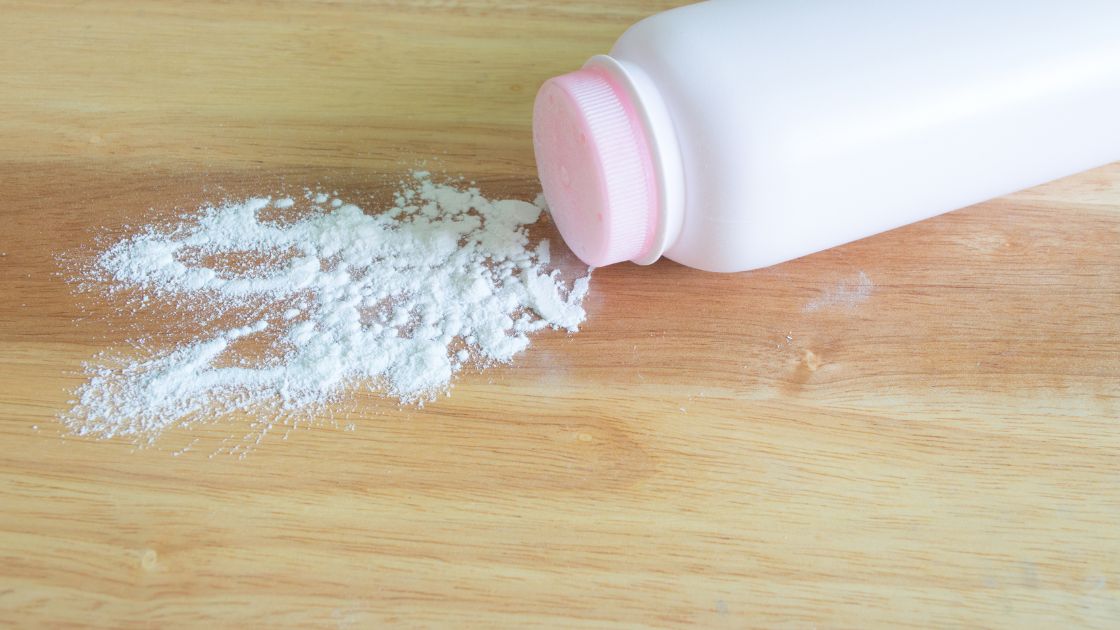
Is talcum powder a risk factor for ovarian cancer?
Due to the baby powder's ultra-fine talc particles, they can enter a woman's vagina, pass through her fallopian tubes, and become lodged in her ovaries. Talc particles gradually irritate the ovaries, which leads to the growth, development, and spread of malignant cells.
How risky is ovarian cancer?
Sadly, ovarian cancer is rarely discovered before it has spread to the pelvis and abdomen in addition to the ovaries. According to the Conquer Cancer Foundation, over 14,000 American women lose the battle with ovarian cancer each year. Sadly, even the survivors are left with a lot of agony and suffering in addition to hefty medical expenses that could take a lifetime to pay off.
How long has it been known that talc and ovarian cancer are related?
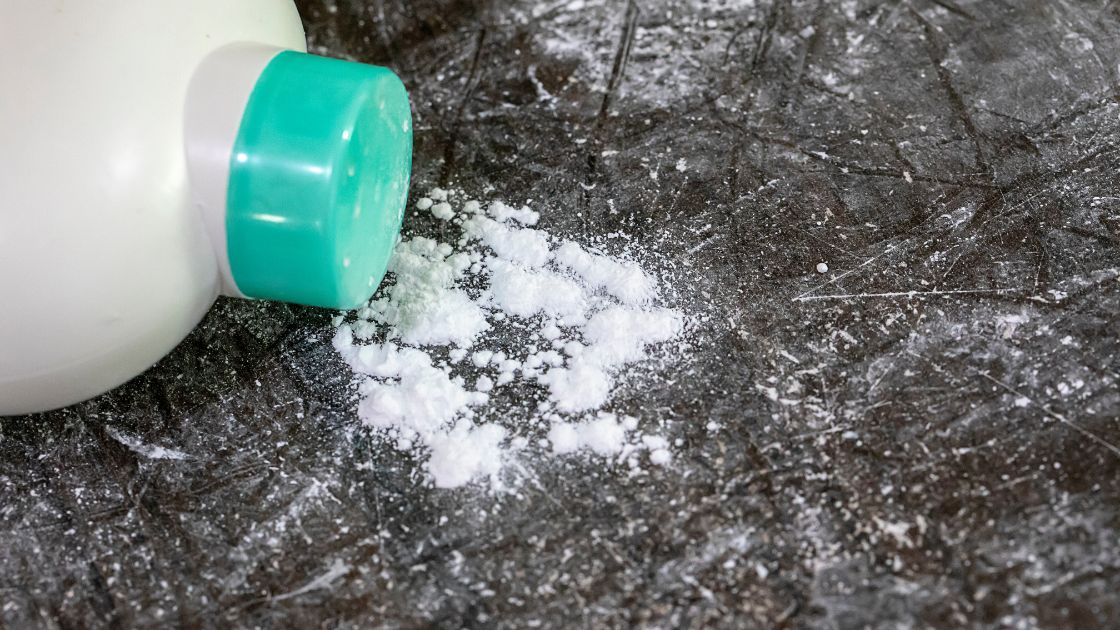
Using talcum baby powder for feminine hygiene has increased ovarian cancer cases in studies from the 1970s. Weekly usage of talcum powder increases the risk of the disease in women by 33%. Using talcum powder daily for perineal dusting raises the chance to 41% compared to women who do not use it frequently.
Has talc been prohibited?
Talcum powder is allowed in most of the world, including the United States, Canada, the United Kingdom, and Australia. Talcum powder is becoming more popular, although few restrictions forbid its usage.
One of the rare laws that prohibit the usage of talc powder appears in Europe. People can buy talcum powder in the EU, but children can not consume that product.
What are ovarian clinical signs?
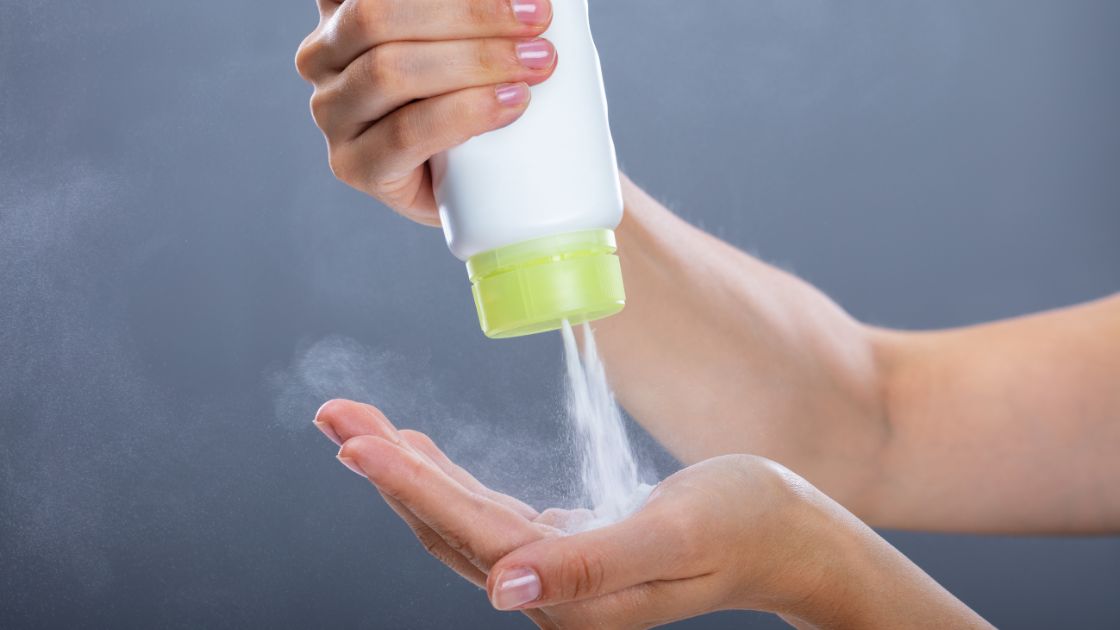
What are talc's side effects?
The side effects of talcum powder include:
Infants experience most side effects more frequently than adults do. While these symptoms are mild, they may be a more severe illness, especially respiratory symptoms.
Can the baby powder be used in diapers?
Many parents are concerned if the baby powder is still acceptable to use in diapers because it is related to lung problems. Powder dust particles can be, unfortunately, carried through the air. The best course of action is to avoid dusting the diaper area with powder due to the potential for lung irritation and elevated risk of genital cancer.
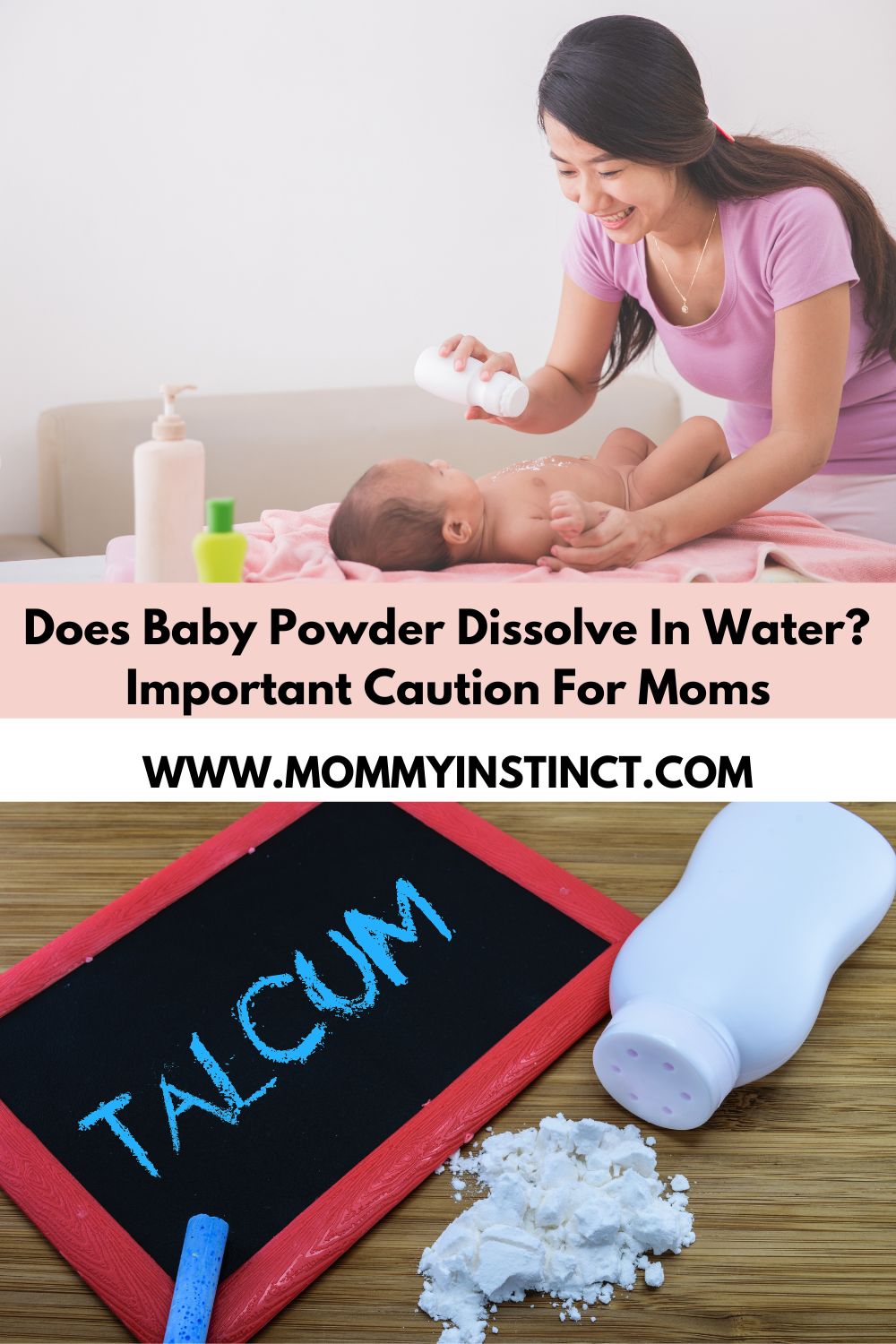
Conclusion
Nowadays, the key ingredient in baby powder is corn starch or tapioca starch, so the baby powder does not dissolve in water.
Not only the compositions of most baby powders on the market now are natural-based, but they also do not contain talc, so parents do not have to doubt the safety of the baby powder.
The critical caution for moms is to consider the ingredients printed on the label will not cause allergy to baby skin before buying the baby powder. Check if the product is FDA-approved and avoid fragrances.
To ensure your children are safe using baby powder, parents should not put it near the newborn's reach and never shake the product directly onto them.

